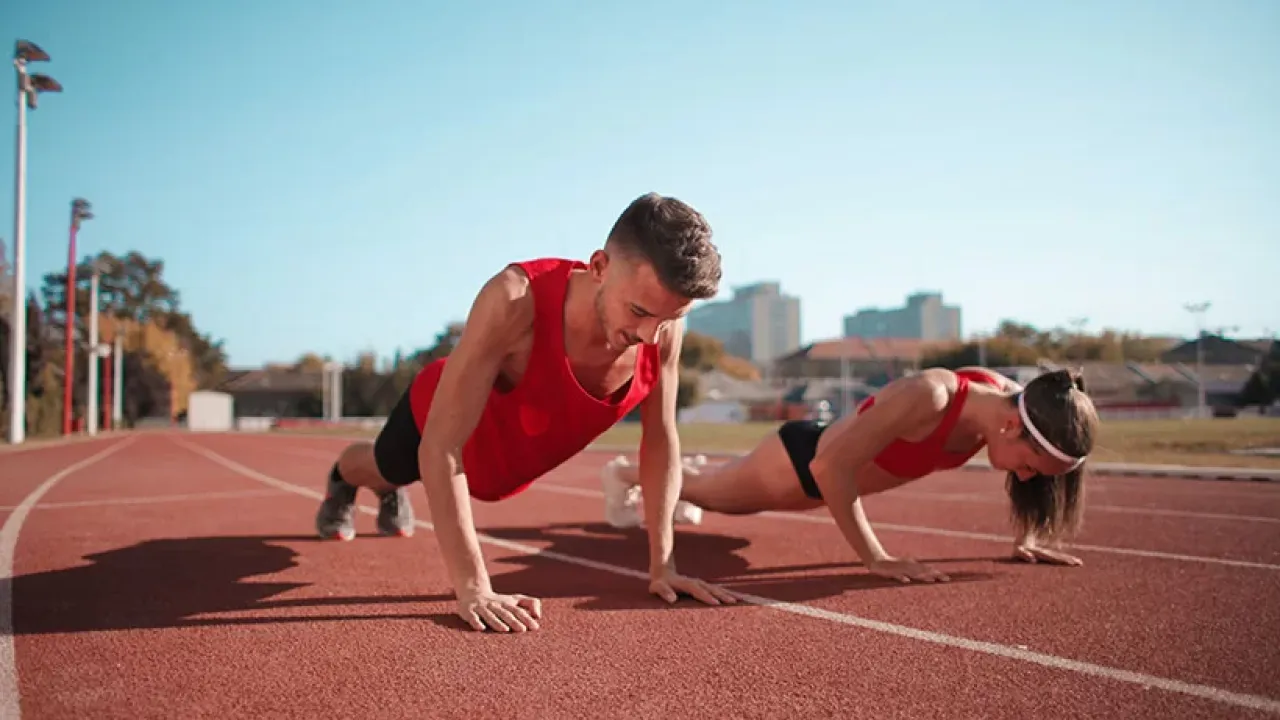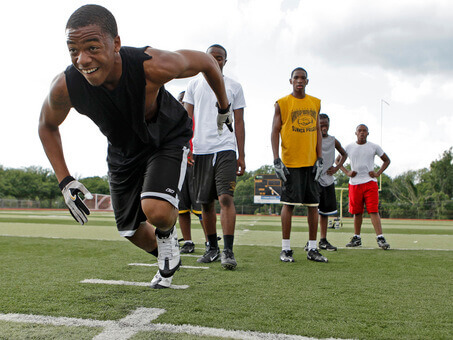Sports Competition Preparation Tips
Get ready for success with our sports competition preparation tips. Learn how to prepare effectively for your next event .

Gearing up for a sports competition or event is a meticulous and multi-faceted process that requires careful planning, dedication, and discipline. Whether you are an amateur athlete preparing for a local race or a professional competitor getting ready for a major tournament, the steps involved in preparing for the big day are largely the same. In this comprehensive guide, we will delve into the intricate process of gearing up for a sports competition or event, covering everything from setting goals to the final moments before the competition begins.
Setting Clear Goals
The journey to a successful sports competition or event starts with setting clear and achievable goals. This step is crucial as it provides you with direction and motivation throughout the preparation process. Your goals should be specific, measurable, and time-bound. For example, if you are a marathon runner, your goal might be to finish the race in under four hours or to improve your personal best time by a certain margin.
Creating a Training Plan
Once you have established your goals, the next step is to create a training plan tailored to your sport and specific objectives. A well-structured training plan typically includes:
Periodization: Dividing your training into phases, such as the preparation phase, competition phase, and recovery phase, each with its own focus and goals.
Workouts: Designing a variety of workouts to improve different aspects of your performance, including endurance, strength, speed, and technique.
Rest Days: Scheduling regular rest days to allow your body to recover and prevent overtraining.
Nutrition: Developing a nutrition plan that supports your training goals, including proper hydration and a balanced diet.
Cross-Training: Incorporating cross-training activities to prevent monotony and reduce the risk of injury.
Monitoring Progress: Continuously assessing and adjusting your training plan based on your progress and feedback from coaches or trainers.
Seeking Professional Guidance
Many athletes benefit from working with coaches, trainers, or sports professionals who can provide expert guidance and support. Coaches can help refine your technique, provide structured training programs, and offer valuable insights to enhance your performance. They can also help you identify and address weaknesses in your training routine and offer psychological support to build mental resilience.
Diet and Nutrition
Nutrition plays a pivotal role in an athlete's performance and overall well-being. Properly fueling your body is essential for maximizing your training gains and ensuring you have the energy required to compete at your best. Consider the following nutritional aspects when gearing up for a sports competition or event:
Balanced Diet: Consume a balanced diet that includes a variety of foods from all food groups, including carbohydrates, proteins, fats, vitamins, and minerals.
Hydration: Staying adequately hydrated is crucial. Develop a hydration plan that accounts for your training intensity, environmental conditions, and individual needs.
Meal Timing: Plan your meals and snacks strategically around your training sessions and competition schedule to optimize energy levels and recovery.
Supplements: Consult with a sports nutritionist or healthcare professional to determine if you need any supplements, such as vitamins, minerals, or protein shakes, to support your training.
Recovery Nutrition: After intense training sessions, prioritize post-workout nutrition to aid muscle recovery and reduce the risk of injury.
Rest and Recovery
Rest and recovery are often overlooked aspects of sports preparation, but they are just as crucial as training itself. Without proper recovery, your body may not adapt to the training stimulus, leading to fatigue, overuse injuries, and subpar performance. Here are key elements of effective rest and recovery:
Sleep: Prioritize quality sleep, aiming for 7-9 hours per night. Sleep is when your body repairs and regenerates tissues, making it essential for recovery.
Active Recovery: Incorporate light activities like stretching, yoga, or swimming on rest days to promote blood flow and alleviate muscle soreness.
Massage and Bodywork: Consider regular massages or visits to a physical therapist to address muscle imbalances and tightness.
Mental Recovery: Engage in relaxation techniques, such as meditation or mindfulness, to manage stress and maintain mental clarity.
Mental Preparation
Mental preparation is often the difference-maker in sports competitions. Athletes must develop mental resilience, focus, and confidence to perform at their best when the pressure is on. Here are some strategies for mental preparation:
Visualization: Practice visualization techniques to mentally rehearse your performance and imagine success in vivid detail.
Goal Setting: Set performance-related goals to maintain motivation and stay focused during training and competition.
Positive Self-Talk: Cultivate a positive inner dialogue and challenge negative thoughts that may undermine your confidence.
Stress Management: Learn stress management techniques such as deep breathing, progressive muscle relaxation, or mindfulness meditation to stay calm under pressure.
Pre-Competition Routine: Develop a pre-competition routine that helps you get into the right mindset, whether it involves listening to music, a specific warm-up sequence, or a motivational mantra.
Gear and Equipment
Your choice of gear and equipment can significantly impact your performance and comfort during a sports competition or event. It's essential to ensure that your equipment is in excellent condition and suits the specific requirements of your sport. Consider the following:
Apparel: Invest in high-quality sportswear designed for your activity. Ensure it fits well and is suitable for the weather conditions you may encounter during the competition.
Footwear: Choose appropriate footwear that provides the necessary support and cushioning for your sport. Make sure your shoes are broken in before the event.
Equipment Maintenance: Regularly inspect and maintain your equipment, whether it's a tennis racket, bicycle, or weightlifting barbell, to prevent unexpected issues during the competition.
Backup Gear: Have a backup set of gear and equipment in case of unforeseen circumstances or equipment failures.
Comfort Items: Consider any personal comfort items, such as sweatbands, gloves, or sunglasses, that can enhance your performance and comfort.
Tapering and Peaking
In the weeks leading up to the competition, athletes often employ a tapering strategy to ensure they are in peak physical condition on the day of the event. Tapering involves reducing the volume and intensity of training while maintaining the intensity of specific workouts. The goal is to allow the body to recover fully while preserving fitness gains. The tapering period varies depending on the sport but typically ranges from one to three weeks.
During the tapering phase, athletes may also fine-tune their nutrition, hydration, and sleep patterns to optimize their physical readiness. It's essential to trust the training you have completed thus far and resist the urge to overtrain or make significant changes in the days leading up to the competition.
Final Preparations
As the competition or event approaches, it's time to focus on the final preparations:
Race Day Plan: Develop a detailed race day plan that includes your schedule, transportation, and any logistical considerations.
Checklist: Create a checklist of everything you need for the competition, from your gear and equipment to nutrition and hydration supplies.
Venue Familiarization: If possible, visit the competition venue in advance to familiarize yourself with the layout and any potential challenges.
Mental Visualization: Engage in mental visualization exercises to mentally prepare for the competition and build confidence.
Race Simulation: Conduct a race simulation in the weeks leading up to the event to practice your strategy and identify any issues that need addressing.
Travel Arrangements: If the competition involves travel, ensure your travel arrangements are well-planned, including accommodation and transportation.
On the Day of the Event
The day of the event is when all your preparation comes to fruition. Here are some key considerations for the day of the competition:
Arrive Early: Arrive at the venue well in advance to allow time for any unexpected delays or last-minute preparations.
Warm-Up: Follow your pre-competition warm-up routine to prepare your body for the physical demands of the event.
Nutrition: Stick to your nutrition plan, consuming a balanced meal or snack depending on the timing of your event.
Hydration: Stay hydrated throughout the day, but avoid excessive water intake just before the competition to prevent discomfort.
Mental Focus: Use your mental preparation techniques to stay focused and confident. Remind yourself of your goals and the hard work you've put in.
Support Team: If you have a support team, such as a coach or family members, coordinate with them regarding your needs and logistics.
Stay Relaxed: Manage pre-competition nerves through deep breathing exercises or other relaxation techniques. It's normal to feel anxious, but channel that energy into positive excitement.
Competing at Your Best
When the competition begins, it's crucial to focus on executing your game plan to the best of your ability. Here are some tips for competing at your best:
Stay in the Moment: Concentrate on the present moment rather than dwelling on past mistakes or worrying about the future.
Adaptability: Be prepared to adapt your strategy if necessary. Sports events can be unpredictable, and the ability to adjust can be a significant advantage.
Pacing: Pace yourself appropriately to ensure you have enough energy to finish strong, especially in endurance events.
Positive Self-Talk: Use positive self-talk to stay motivated and maintain a winning mindset.
Celebrate Small Victories: Acknowledge and celebrate small achievements and milestones during the competition to stay motivated.
Post-Competition Recovery
Once the competition is over, it's essential to prioritize post-event recovery to aid in your physical and mental recuperation:
Cool Down: Engage in a proper cool-down routine, including stretching and light exercise, to prevent stiffness and aid in recovery.
Nutrition: Consume a post-competition meal or snack that includes a balance of carbohydrates and proteins to kickstart the recovery process.
Hydration: Rehydrate to replace fluids lost during the competition.
Reflection: Take time to reflect on your performance, identifying both strengths and areas for improvement.
Rest: Allow yourself adequate time to rest and recover before resuming training. This may involve a few days of light activity or complete rest, depending on the intensity of the competition.
Future Planning: Start thinking about your next steps, whether it's setting new goals, adjusting your training plan, or planning your next competition.
Gearing up for a sports competition or event is a holistic process that involves physical, mental, and logistical preparation. Athletes who meticulously plan and execute each step of the journey are more likely to achieve their goals and perform at their best when it matters most. Remember that success in sports is not just about the outcome but also about the dedication, discipline, and personal growth that come from the preparation and competition itself. Whether you're an aspiring amateur or a seasoned professional, the journey of gearing up for a sports competition is a rewarding and transformative experience.
What's Your Reaction?
















